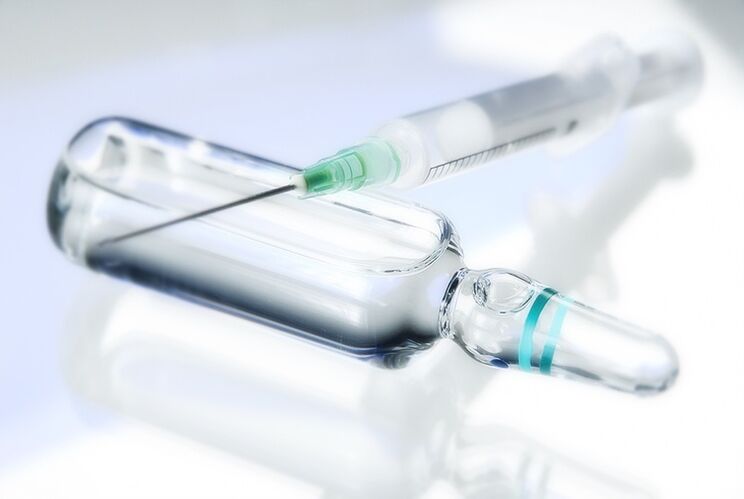Prostatitis is an inflammatory disease of the prostate gland. As with any inflammatory disease, the mainstay of treatment for prostatitis is conservative therapy. There are many kinds of drugs, and each drug has its own indications.
Pills for prostatitis
Taking tablets is the main method of treating prostatitis. Indications for this therapy are as follows:
- Pain when urinating;
- difficulty urinating;
- pelvic fullness;
- Perineal pain;
- Prostatitis or spermatorrhea;
- increase nocturnal diuresis;
- A feeling that the bladder is not completely empty.
notes! In general, any symptom of acute or chronic prostatitis is an indication for the appointment of certain drug groups.

Types of Pills for Prostatitis
Depending on the type, form, and main manifestations of prostatitis, your doctor may prescribe one or more of the following medications:
- painkiller;
- antibiotic;
- herbal preparations;
- Antispasmodics;
- Immunomodulators;
- Alpha blockers.
Each of these groups has many members.
painkiller
These drugs inhibit the main enzymes of inflammation, thereby disrupting its pathogenesis. The reduction of inflammatory processes leads to a decrease in tissue edema, which no longer compresses the urethra and nerve endings.
Thus, the pain syndrome ceased.
If prostatitis is accompanied by constant or intermittent pain, you need to take painkillers.
antibiotic
If prostatitis is caused by the action of pathogenic microflora, antibiotics are required.
These drugs act on the etiology of inflammation, inhibiting the infectious process in glandular tissue. Prescribe broad-spectrum antibiotics or drugs sensitive to these microorganisms.
This is very important! Antibiotics may also be prescribed for noninfectious prostatitis if the enlarged prostate is compressing the urethra. Due to a violation of the outflow of urine, the development of cystitis and pyelonephritis is possible. Antibiotics are used to prevent these diseases.
Herbal preparations
Botanicals work in complex ways thanks to plant bioflavonoids, vitamins and amino acids. They reduce inflammation, relieve smooth muscle spasms, improve tissue nutrition and boost immunity. However, they are not always of sufficient strength, so they are prescribed with other medications.
Antispasmodics
This group of medicinal substances has a muscular contraction effect and relaxes smooth muscles. As a result, the tension in the prostate and urethra is reduced, urinary retention stops and pain is reduced.
In addition, antispasmodics reduce vascular tone, which improves the nutrition of prostate tissue and accelerates its regeneration.
immunomodulator
These drugs stimulate the body's defenses. They increase cellular and humoral immunity, which is important for fighting inflammation.
This is very important! Immunomodulators should not be prescribed for autoimmune prostatitis. This form of inflammation is caused by immune cells attacking glandular tissue. This group of drugs only made the situation worse.
alpha blockers
These drugs work in a similar way to antispasmodics. The difference is that they reduce smooth muscle tone by affecting nerve endings.
notes! They have more side effects, so this group of drugs is indicated for severe obstructive or pain syndromes.
Comparison Table of Prostatitis Tablets
| drug group | Mechanism | Indications for use | side effect |
|---|---|---|---|
| painkiller | Reduces inflammation and compression of nerve endings. | Pronounced Pain Syndrome. Pain when urinating or ejaculating. | Thrombocytopenia, gastric and duodenal ulcers, interstitial nephritis. |
| antibiotic | Kill pathogenic bacteria or prevent their reproduction. | Infectious prostatitis, a proven microbial etiology of the disease, obstructive syndrome. | Suppresses own microbial flora, damages liver cells, blood system diseases. |
| Herbal preparations | Reduce inflammation and spasm, improve tissue nutrition. | As an add-on treatment with any form of prostatitis. | allergic reaction. |
| Antispasmodics | Relieves smooth muscle spasms. | Obstructive phenomena, urinary retention, pain syndromes. | Dizziness, tachycardia, decreased blood pressure. |
| immunomodulator | Increase the body's own immunity. | Any form of prostatitis, additional medication. | Allergies and autoimmune reactions. |
| alpha blockers | Reduce prostatic smooth muscle spasm and improve nutrition. | Obvious obstructive syndrome. The acute phase of inflammation. | Tachycardia, drop in blood pressure, dizziness, headache. |






























